What is SCIM Provisioning?
SCIM provisioning, or System for Cross-Domain Identity Management provisioning, is a standardized way to automate the process of creating, updating, and removing user accounts across multiple applications.
Instead of manually adding or deleting users in each platform, SCIM provisioning ensures that any change made in one system is instantly reflected in all connected systems. This keeps user data consistent, reduces admin workload, and improves security.
With SCIM provisioning in place, businesses on Shopify and similar platforms can:
- Create and update user profiles in real-time.
- Deactivate or remove access instantly when employees leave.
- Maintain accurate, up-to-date information across all platforms.
SCIM is an important part of modern identity and access management (IAM) strategies, making it easier to control who has access to your resources while ensuring compliance and operational efficiency.
How SCIM Provisioning Works?
SCIM provisioning automates the process of creating, updating, and removing user accounts across multiple platforms. In a Shopify context, it ensures that any change to a user’s profile in your Identity Provider (IDP) is instantly reflected in Shopify or other connected systems, without much manual effort.
SCIM provisioning uses well-established web standards like REST and JSON. It involves two main roles:
- Identity Provider (IDP): Stores and manages user identities (e.g., Microsoft Entra ID, Okta).
- Service Provider (SP): The application that needs those identities; in this case, Shopify.
When a user is created, updated, or deleted in the IDP, SCIM automatically syncs those changes to the SP. For example, if an employee leaves your organization, SCIM provisioning can immediately deactivate their Shopify access, improving both security and efficiency. This real-time user sync also works for role updates, profile edits, and onboarding new team members.
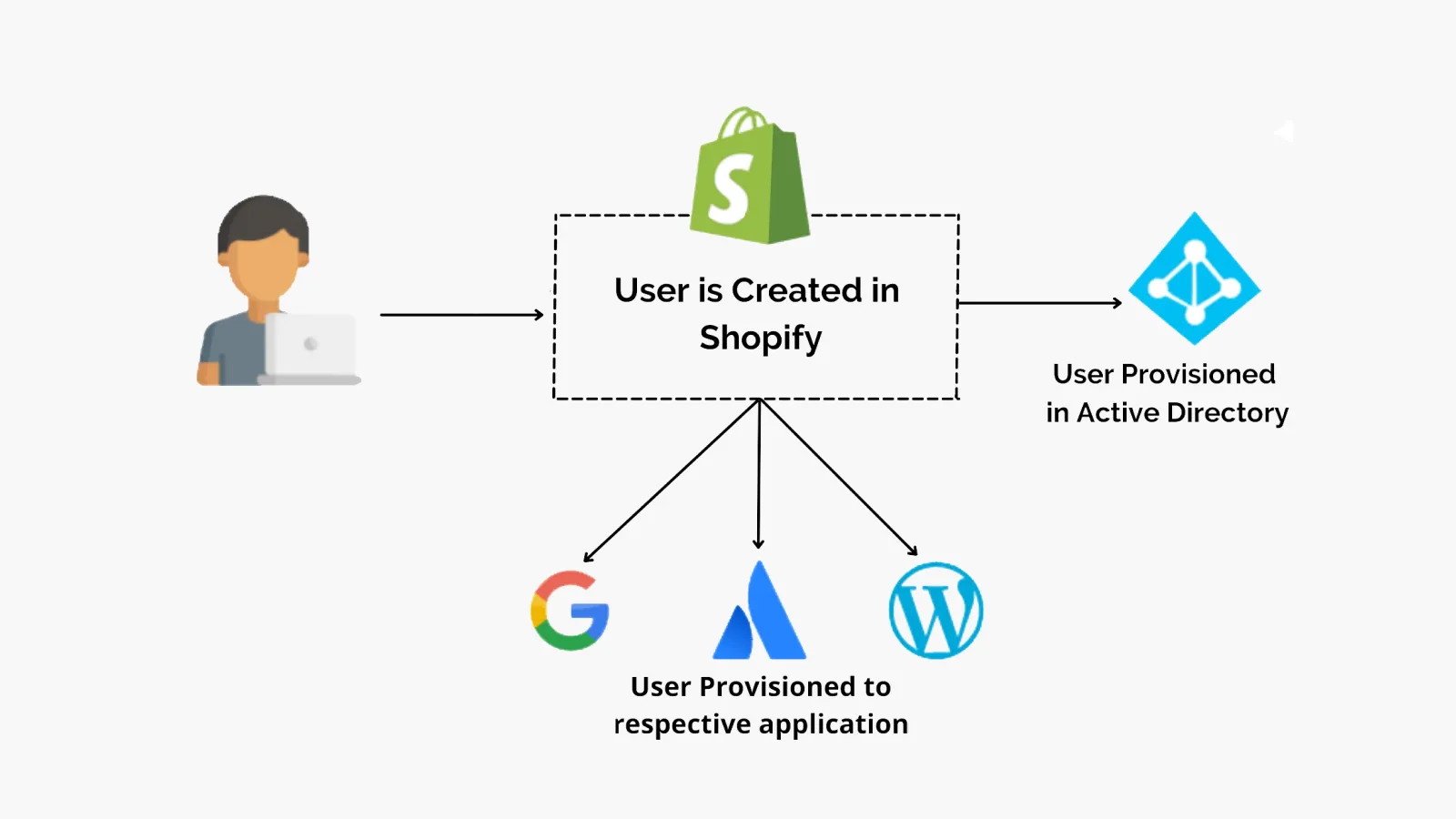
Why Does SCIM Integration Matter for Businesses?
By eliminating manual user management, SCIM provisioning can help organizations:
- Reduce administrative workload.
- Ensure consistent and accurate user data across platforms.
- Strengthen access control and compliance.
Benefits of SCIM Provisioning
Understanding the benefits of SCIM can help Shopify merchants see why it’s an essential solution for efficient and secure identity management. SCIM protocol simplifies how businesses handle user accounts across multiple platforms by automating provisioning, updates, and deprovisioning.
What are the benefits of using SCIM in Shopify?
- Standardized & Seamless Identity Management: One of the biggest benefits of SCIM is that it follows open standards. This ensures compatibility and interoperability between your Shopify store and other connected applications. You no longer have to worry about mismatched records, duplicate data entry, or slow partner communication; SCIM integration keeps everything in sync automatically.
- Reduced Manual Effort & Errors: With SCIM provisioning, repetitive administrative work like adding new users, assigning permissions, or removing inactive accounts becomes automated. This reduces the risk of human error and saves valuable time for IT teams, letting them focus on more strategic tasks.
- Faster Onboarding & Offboarding: SCIM user provisioning streamlines onboarding by instantly creating accounts for new team members with the right roles and permissions. Similarly, when a user leaves, their access is removed from all connected applications in real-time, helping prevent unauthorized access and protecting sensitive business data.
- Cost Efficiency & Scalability: Automating identity management cuts down operational costs tied to manual processes. For growing organizations, SCIM’s ability to scale with your workforce ensures smooth user lifecycle management without adding complexity or extra workload.
- Enhanced Security & User Experience: By integrating SCIM with Single Sign-On (SSO), users only need to log in using their existing credentials once to access Shopify stores and connected applications. This improves convenience and reduces login fatigue, as well as risks related to weak, reused, or forgotten passwords.
Why is SCIM Important for Shopify?
As more Shopify merchants adopt multiple cloud-based tools for sales, marketing, inventory, and customer engagement, SCIM user provisioning has become a critical part of managing store access securely and efficiently. Whether you operate a single Shopify Plus store or manage multiple storefronts for different regions, manually adding and removing employee accounts is both time-consuming and prone to error.
With the integration of SCIM with SSO, store owners can automate the entire user lifecycle, from onboarding new team members to updating roles or deactivating accounts when someone exits the company. This ensures that permissions stay accurate across all connected systems, reducing security risks and saving valuable IT resources.
For fast-growing Shopify businesses, scalability is key. As your team expands and you integrate more third-party apps into your store, SCIM provisioning keeps identity management streamlined and consistent. This means:
- New hires can get instant access to the right stores and apps without manual setup.
- Role changes are reflected automatically across all systems.
- Former employees’ access is revoked immediately, protecting sensitive business data.
By combining SCIM with Shopify’s authentication workflows, merchants can improve security, cut down on administrative overhead, and focus more on growth, without worrying about user management bottlenecks.
How Does SCIM Provisioning and Deprovisioning Work in Shopify?
With a SCIM-based user sync solution for Shopify along with SSO, you can connect your Identity Provider (IDP) to one or more stores, enabling real-time user provisioning and deprovisioning across platforms. The SCIM protocol is a flexible way to maintain accurate and secure access at scale.
Imagine your organization runs multiple Shopify stores and uses an IDP to manage employee access. When a new member joins, their account is created in the IDP. The SCIM integration instantly provisions this account in every connected Shopify store, automatically assigning tags, groups, or roles based on your configuration.
The same process works in reverse. If a team member leaves the company or changes roles, SCIM deprovisioning will immediately update or revoke their Shopify access. This not only strengthens store security but also reduces administrative workload for IT teams.
By using SCIM provisioning in Shopify, businesses can maintain a secure, compliant, and efficient workflow while giving employees the access they need.
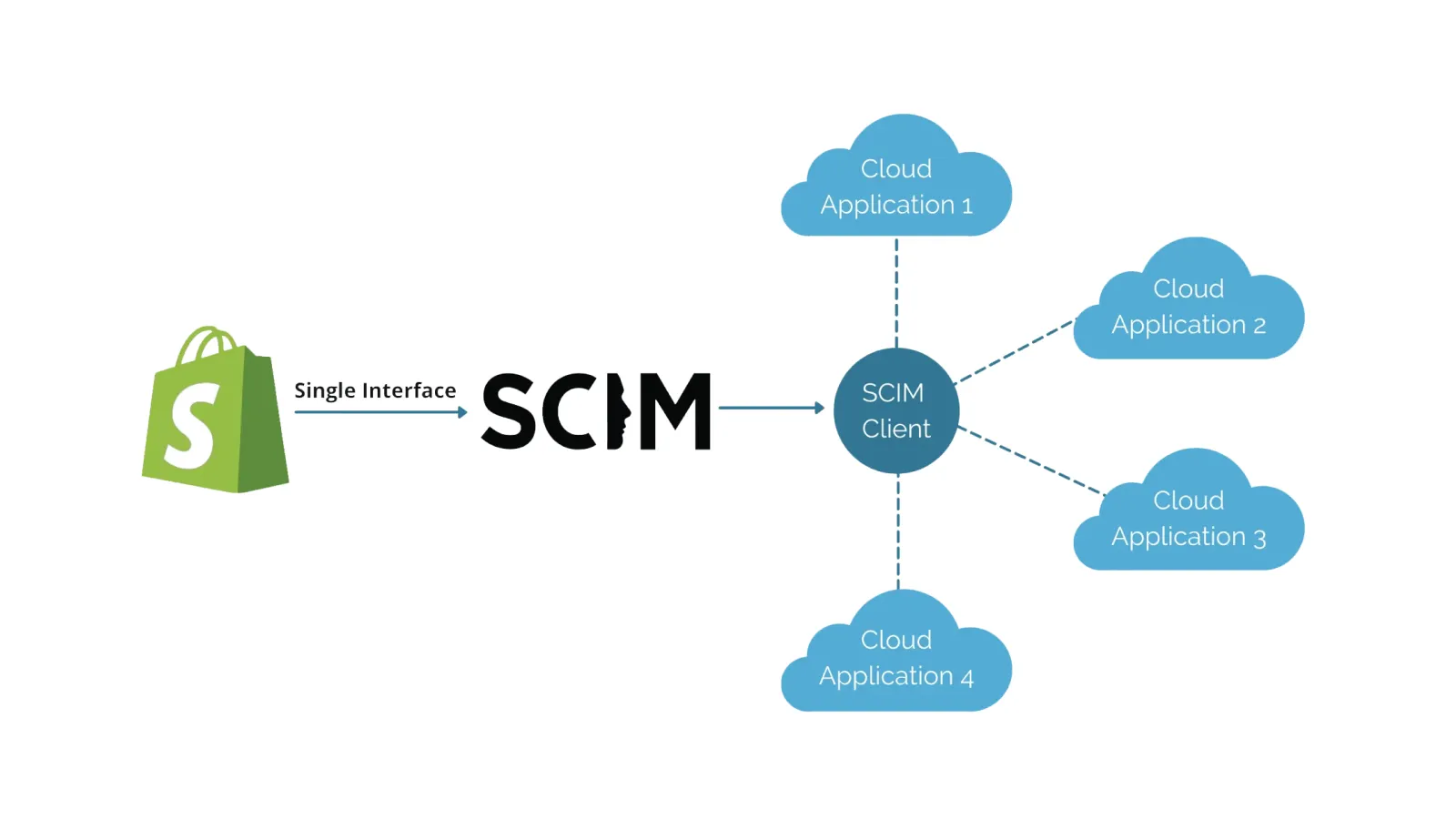
Why Choose SCIM for Shopify?
SCIM integration gives businesses the ability to sync user data instantly between Shopify and multiple identity providers, such as Okta, Microsoft Entra ID (formerly Azure AD), etc. By automating user provisioning and deprovisioning, IT teams can maintain a single, central point for managing permissions and groups across all Shopify stores.
Rather than juggling endless spreadsheets or manually updating accounts in multiple systems, a user sync application can automatically provision new employees, update user details, and deactivate accounts the moment someone leaves your team. This keeps your Shopify ecosystem clean, secure, and fully aligned with your workforce changes.
How Does SCIM Solve Challenges Related to User Management?
Without SCIM, user management in Shopify can quickly become a manual, repetitive process. Each new hire or role change requires individual account setup across various stores and systems, often consuming several minutes per user. When scaled to hundreds of employees, this becomes a significant drain on IT resources.
With SCIM user sync in place, account creation, updates, and role assignments happen automatically. Each update in the identity provider is instantly reflected in every connected Shopify store, ensuring consistent access rights and reducing the chance of human error.
For growing businesses, this means:
- Faster onboarding for new employees
- Consistent and secure offboarding to prevent unauthorized access
- Centralized updates for user details, from profile changes to permissions
By replacing manual work with automated, secure, and scalable processes, SCIM provisioning transforms how organizations manage the entire user lifecycle in Shopify.
Key features of using SCIM with Shopify
- Automate User Deprovisioning: When a user is removed from your Identity Provider (IDP) or another connected application, SCIM automatically deactivates or restricts their access to your Shopify store. This prevents unauthorized logins and keeps your store secure without manual intervention.
- Real-time User Provisioning: With SCIM for Shopify, you can enable real-time user provisioning. When a user signs up on your existing website or application, their account is instantly created in Shopify, with no need for separate account creation.
- Auto-assign Customer Tags: You can assign custom tags to each customer at the time of account creation in Shopify. This makes it easier to segment users, manage discounts, or trigger automated workflows.
- Automatic Attribute Mapping: Sync customer details such as name, email, and contact information between your IDP and Shopify automatically. Any updates made in your main application are reflected instantly in Shopify with user sync solutions, reducing errors and inconsistencies.
- Two-way User Profile Sync: Changes made to user profiles in Shopify are automatically reflected in your other connected systems and vice versa. This ensures your user data stays consistent and updated across all platforms.
- Connect Multiple Stores with One Application: If you manage more than one Shopify store, SCIM lets you handle all user provisioning, updates, and deprovisioning from a single connected platform like Okta, WordPress, etc.
Frequently Asked Questions (FAQs)
Why should I use SCIM instead of manual provisioning?
Using SCIM provisioning in Shopify eliminates the need to manually create, update, or delete employee accounts. User provisioning automates these processes, ensuring that user data stays synchronized with your identity provider (IDP), improving accuracy, saving admin time, and strengthening security across your Shopify store.
How does SCIM handle user deprovisioning in Shopify?
With SCIM provisioning, when a user is removed or disabled in your identity provider, the change is automatically reflected in Shopify. Their access is revoked in real-time, preventing unauthorized logins and helping you maintain strict access control. This is especially useful for businesses with high employee turnover or strict compliance requirements.
Can I use SCIM user provisioning on both Shopify Plus and non-Plus plans?
Yes. Real-time user provisioning works with both Shopify Plus and non-Plus plans. Regardless of your plan, SCIM ensures seamless user account synchronization with your IDP.
Does SCIM support role-based access control in Shopify?
Yes. SCIM provisioning can sync not just user accounts, but also their roles and permissions as defined in your identity provider. This means employees automatically get the correct level of access in Shopify based on their role in the IDP, without requiring manual updates.
Does SCIM integration work if my business has multiple Shopify stores?
Yes. If your business operates multiple Shopify stores, you can provision, update, and deprovision user accounts across all stores from a single identity provider with user sync solutions. This centralization reduces duplicate work, ensures consistent role assignments, and improves overall access security for large or distributed teams.
What happens to a user’s access if they are removed from the identity provider?
When a user is removed from your IDP, you can instantly revoke access to their Shopify account using SCIM protocol. This means employees who have left the organization lose access to all assigned Shopify stores, ensuring there are no lingering active accounts that could pose a security risk.
Conclusion
SCIM provisioning transforms how Shopify stores handle user and access management. Instead of relying on time-consuming manual processes, businesses can automatically create, update, and remove user accounts based on changes in their identity provider. This helps the business improve efficiency, strengthen security, ensure consistent role-based access, and keep access synchronized across all connected Shopify stores.
For Shopify merchants managing growing teams, multiple storefronts, or sensitive data, SCIM offers a scalable, secure, and future-ready approach to identity management.
Ready to streamline your Shopify user management? Get in touch to explore a tailored solution for your business.
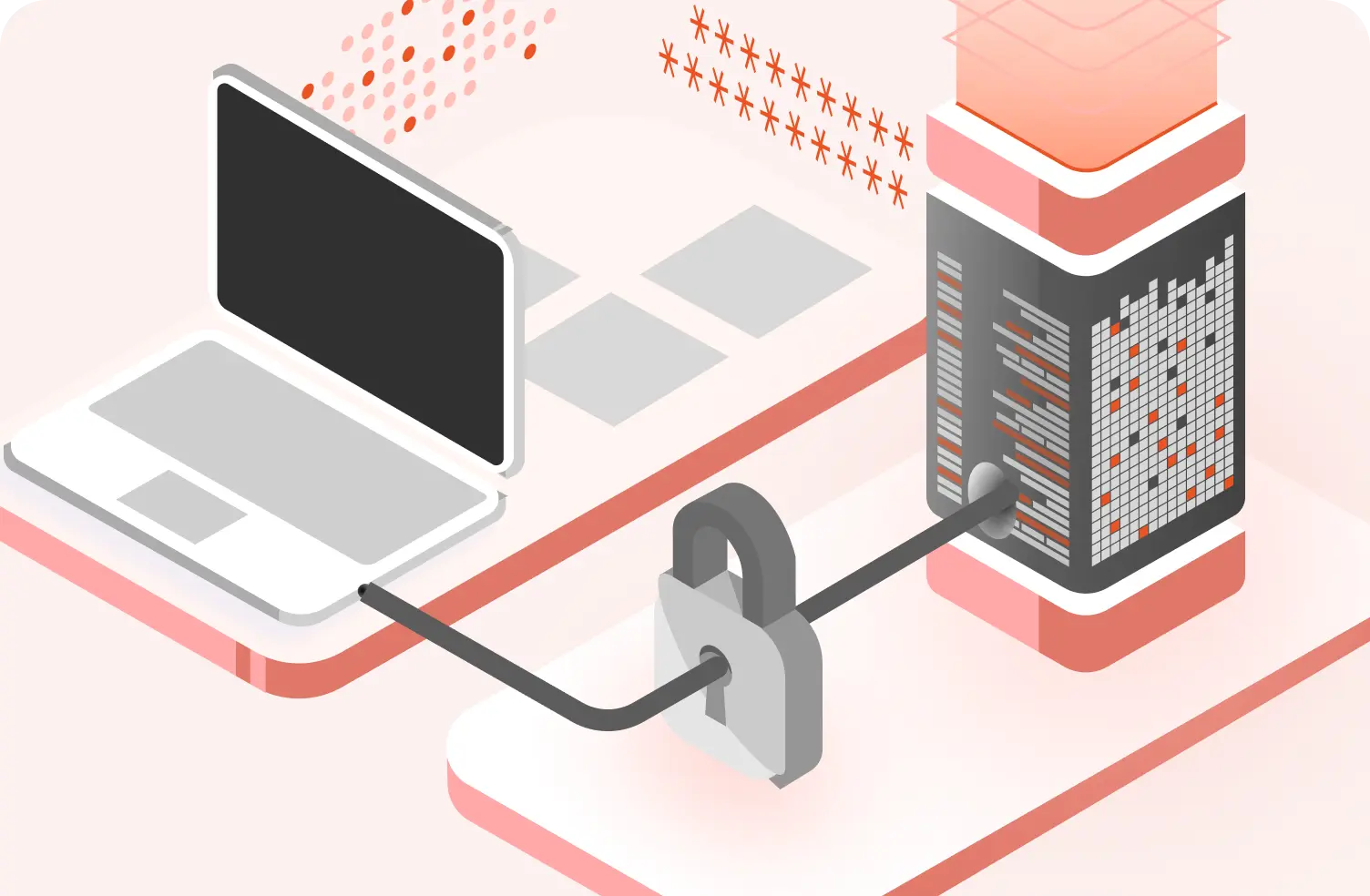
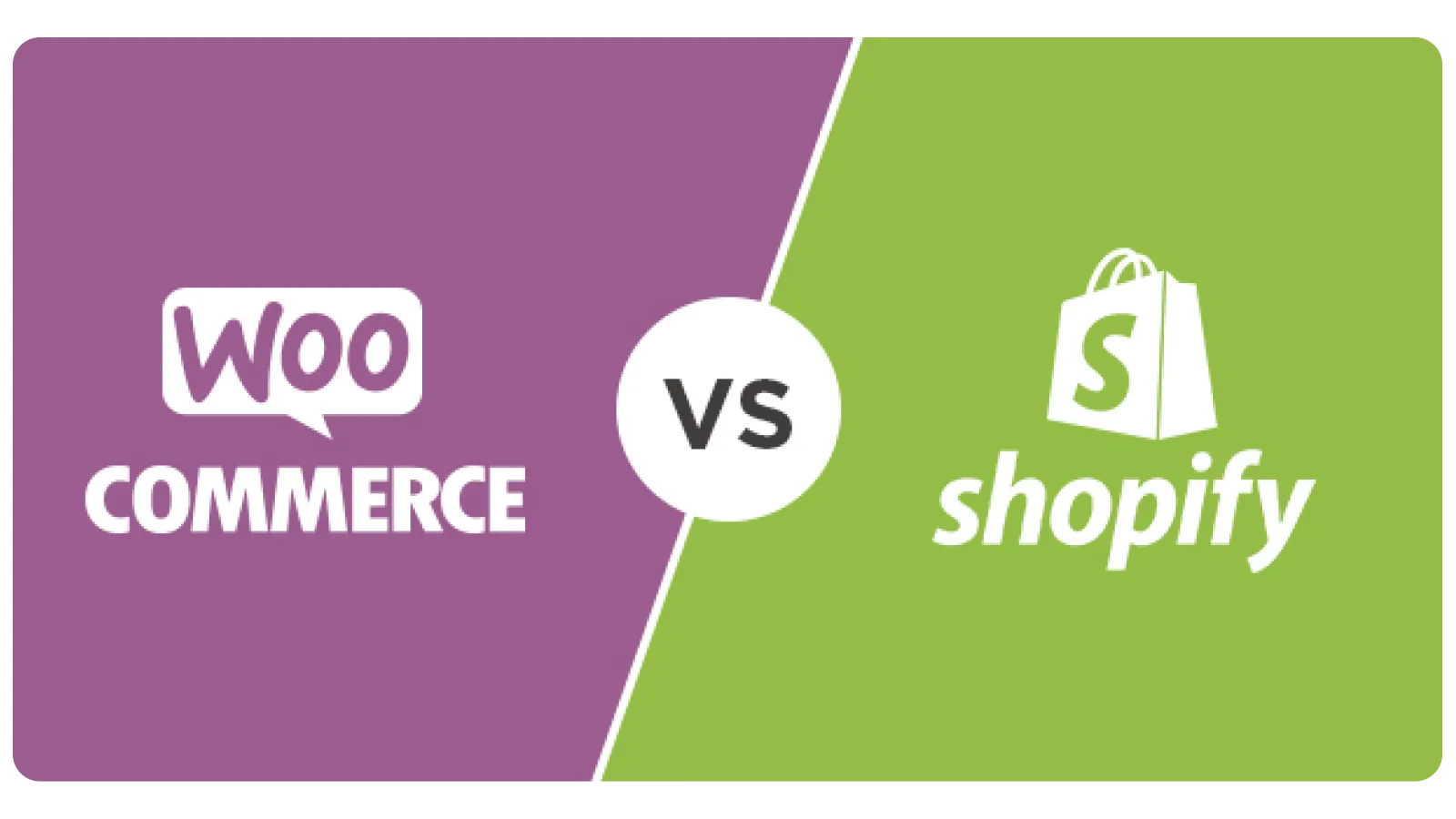
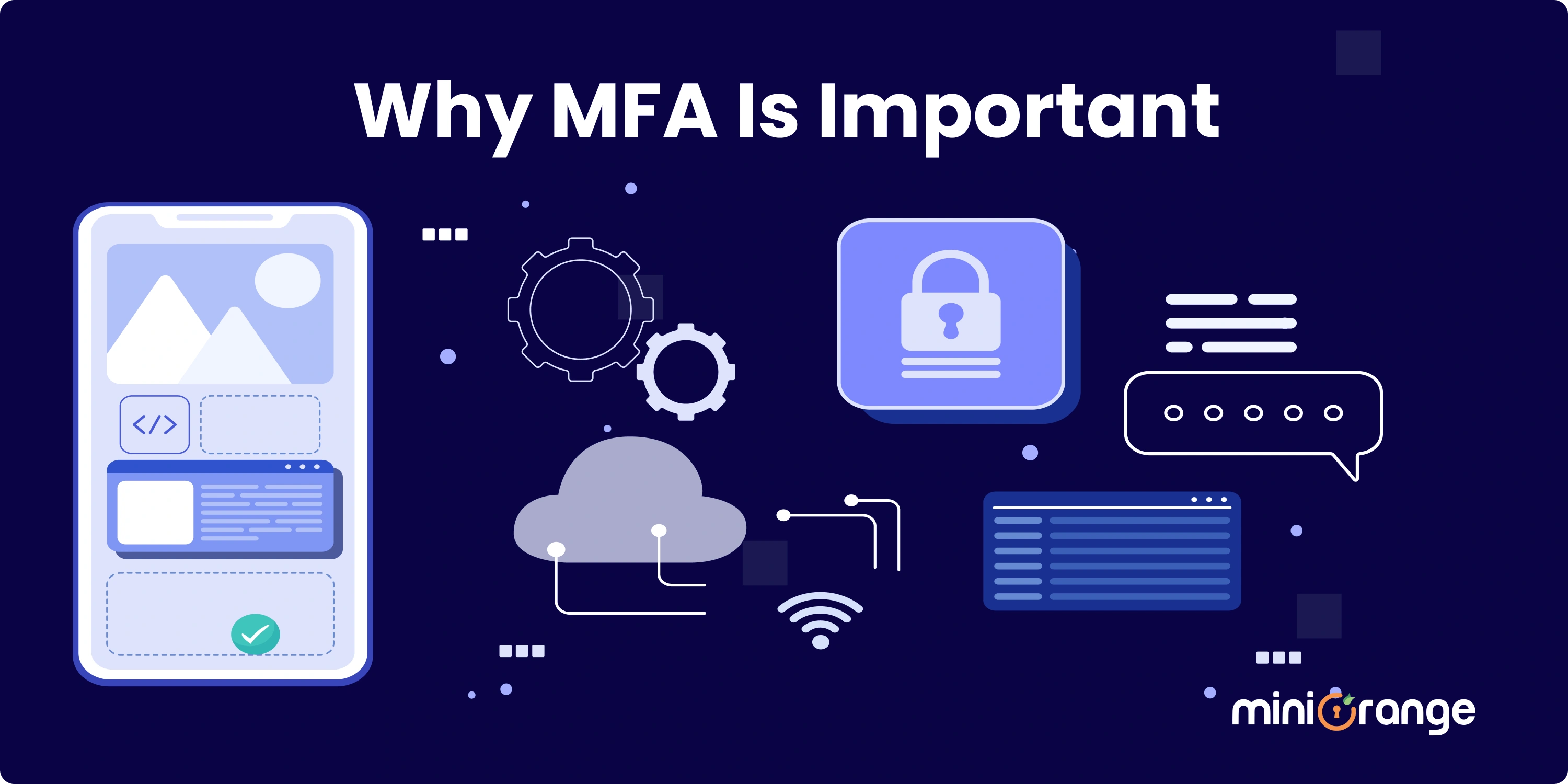

Leave a Comment